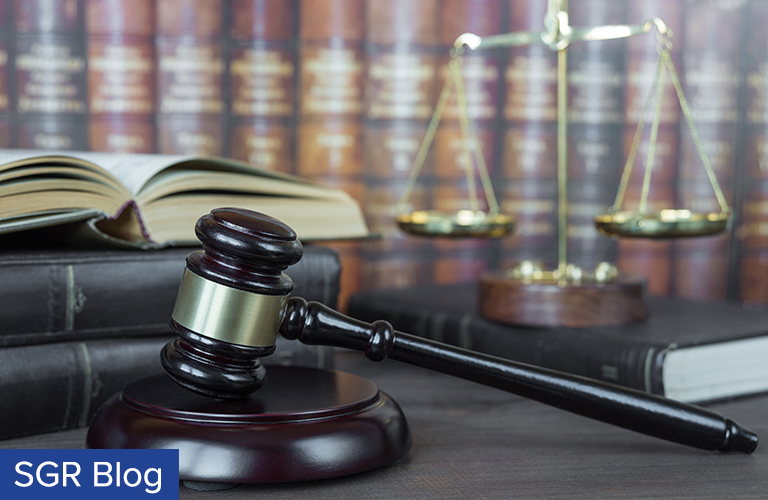
House Bill 311, sponsored by Rep. Andy Welch (R-McDonough) and passed by both the House and the Senate, was recently vetoed by Georgia Governor Brian Kemp. Generally speaking, the purpose of the Bill was to reduce the government’s ability to claim sovereign immunity and allow Georgia citizens the ability to seek judicial relief against public entities and officials that they believe have committed unconstitutional and unlawful acts.
House Bill 311 was the General Assembly’s response to a 2017 abortion rights case in which the Georgia Supreme Court held that Georgia citizens could not seek injunctions or declaratory judgments against a government’s implementation and enforcement of a law without the government’s consent.[i] The full text of the Bill can be found at http://www.legis.ga.gov/legislation/en-US/Display/20192020/HB/311 (last visited May 13, 2019).
Sovereign immunity is a defense that a public entity can raise based upon the concept that the “King can do no wrong.” Sovereign immunity has continued into modern times because we want to encourage public entities and officials to act for the greater good of the general public, without fear of liability.[ii]
Georgia’s Constitution recognizes that a strict application of sovereign immunity could be inequitable to citizens. As a result, the Constitution waives the government’s ability to assert a sovereign immunity defense for contract claims against state governments, but not local governments. It also gives the General Assembly the power to create laws that provide for additional exceptions to the sovereign immunity defense, including exceptions for tort claims[iii] against the state and local governments and their officials.[iv]
The limited exceptions that currently exist under the Constitution seek to balance the need to protect public entities and their officials from liability against the unfairness of not providing a remedy to persons harmed by the public entities and its officials. Therefore, the sovereign immunity defense can be restated as barring claims against public entities and officials, except to the extent that the law specifically recognizes an exception.
If House Bill 311 had been signed into law it would have created several new statutory exceptions to the sovereign immunity defense. Some exceptions apply to state government; others apply to local governments.
House Bill 311’s local government exceptions included exceptions for (1) breach of contract claims against local governments; and (2) declaratory judgment and injunction claims against local governments and officials brought in a superior court in the State of Georgia (i) challenging a local ordinance; (ii) seeking judicial relief from a legal harm caused by a local government’s or its official’s current or imminent unlawful acts; or (iii) seeking judicial relief in relation to a proposed award of a public contract.
A declaratory judgement action is a lawsuit brought by a party seeking a binding judgment from a court that defines the party’s rights in relation to the defendant. Money damages are not awarded as part of a declaratory judgment, although it’s not unusual to have a count for breach of contract for past damages and a count for declaratory judgment for future damages in the same lawsuit.
An injunction claim is a claim asking the court to preclude a party from taking some action that it intends to take in the immediate future. This type of extraordinary relief can be granted only when money damages are deemed insufficient to remedy the harm.
House Bill 311 would have abrogated the government’s ability to assert a sovereign immunity defense against a claim for declaratory or injunctive relief where a public works contractor is adversely affected by the award of a public works contract by a local government.[v] As a result, a public works contractor could sue a public entity to have the public entity enjoined from following an unfair bidding practice, or to have a bidding practice declared invalid before a contract is awarded to another bidder.
House Bill 311’s reach was not limited to contractors and the bid process. If passed, House Bill 311 would have had important implications for all citizens of Georgia because it allowed citizens to challenge legislation before implementation, which could be good or bad depending upon the circumstances and your perspective.
[i] Lathrop v. Deal, 301 Ga. 408, 801 S.E.2d 867 (2017) (finding that the state is immune from lawsuits that challenge the constitutionality of statutes passed by the General Assembly and striking down a challenge brought by three doctors against a statute prohibiting most abortions after 20 weeks of pregnancy).
[ii] See generally O.C.G.A. §50-21-21.
[iii] A “tort” is a legal term that means a wrongful act or an infringement of a right (other than under contract) leading to civil legal liability. For example, trespassing, battery, and negligence are all types of torts.
[iv] Ga. Const. Art. I, Sect. II, Para. IX. & Art. IX, Sect. II, Para. IX.
[v] There are significant time limits for asserting bid protest claims. A bidder claiming that it will be legally harmed by an award of a public contract has 10 days to file a lawsuit in the superior court seeking to either have the award declared unlawful or seeking to enjoin the public entity and its officials from making the award or (most likely) seeking both a declaration and an injunction. Any award of the contract before the 10 days runs would be ineffective until the 10 day period runs.

